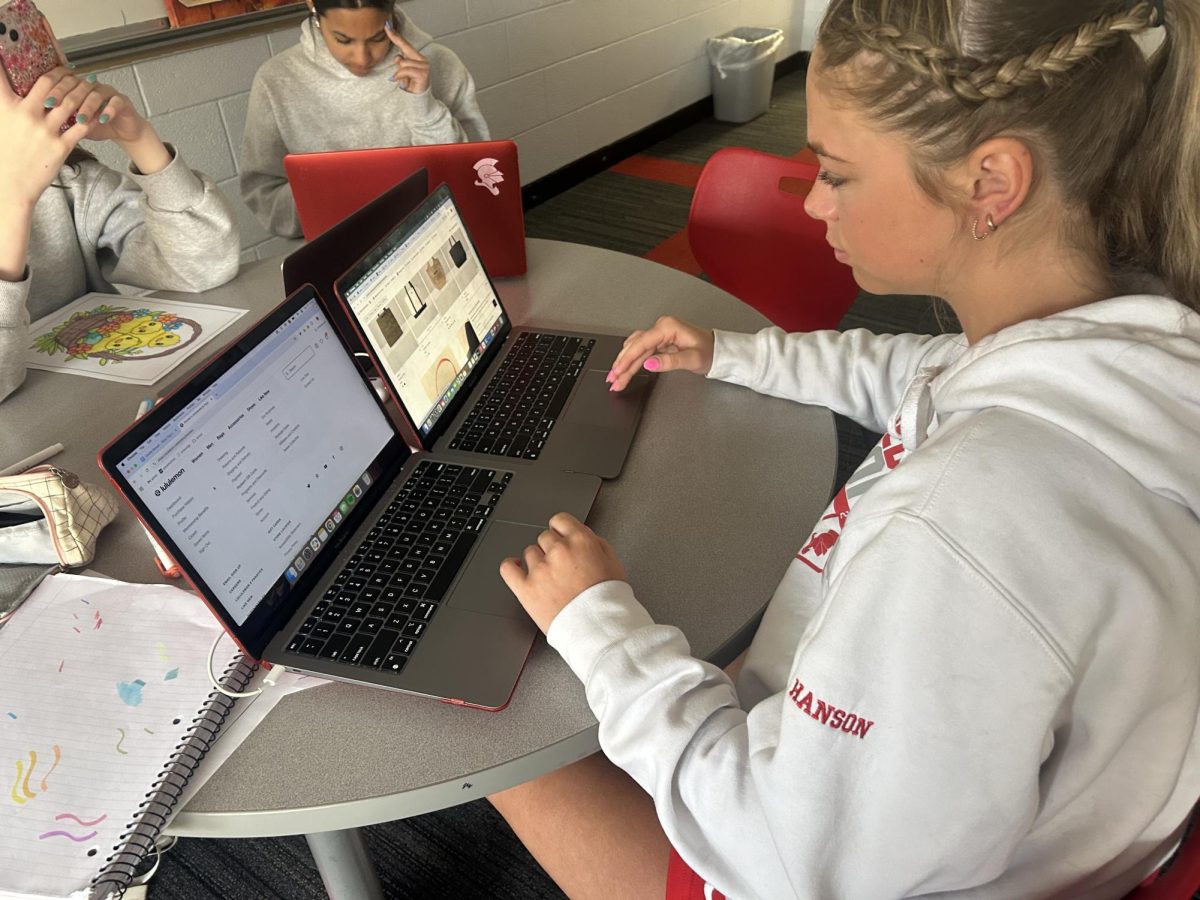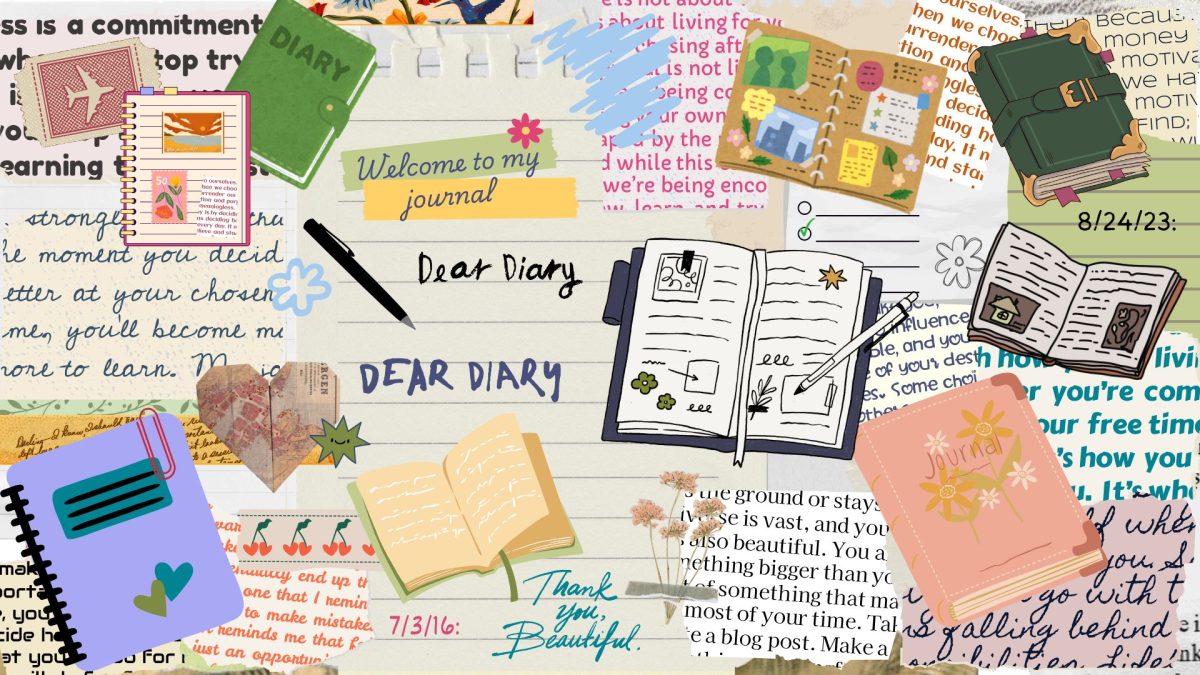It can be easy to get overwhelmed and bothered by busy school schedules, responsibilities, emotions, and daily changes in life. However, journaling can be an influential way for anyone to process their worries and grow their self-awareness and understanding of the sometimes chaotic world around them.
When our minds are ruminating on various thoughts or experiences, one of the best ways to fight through the tornado or spiral is to write it all down. Filling a page in a notebook or journal with thoughts and ideas can help you visualize stressors and make them seem more manageable. It’s especially common to overthink or reflect at night when all of the important moments of the day start to pile up. This is why many people, including me, journal before bed to try and separate anxiety and peaceful sleep time. I’ve always had trouble with my sleep schedule, and if I don’t write before bed, I can’t sleep because of my overthinking.
The sleep struggles and needing an outlet for stress aren’t out of the ordinary. English teacher Jennifer Bevington also writes at the end of the day to sleep better. “If anything really big is on my mind, sometimes I’ll make a list of what I have to do the next day. It’s mostly just a way for me to process what happened that day and think about what’s coming up or anything that’s stressing me out, so I can just lay it on the paper and clear it out of my mind so I can rest,” Bevington said.
When journaling is part of a routine, it can help people wind down at the end of the day with a familiar ritual. In the past, sophomore Arwen Patell journaled daily to write about and reflect on her day, but she hasn’t found time to work it into her routine again. “After everything was out, I could sleep really well. Maybe that’s why I can’t sleep anymore. I don’t journal,” Patell said.
In a form sent out by the Knight Errant, 64% of respondents said they don’t journal because they don’t have time for it or don’t see a reason for doing it. However, journaling doesn’t have to be as scary or time-consuming as it may seem. “There are tons of books and prompts that you can use. Going into it with some sort of idea is always a good thing. But also, just [let] your brain do whatever it wants. If you want to draw, then just draw, and let you get that out in some way. And just feel yourself being present, which I think a lot of people are missing out on,” senior Griffin Stewart said.
Journaling or writing things down can easily work into daily routines. It doesn’t have to take very long to write down what’s bothering you, and you will most likely enjoy the process and feel better after. Journaling can provide daily structure, set intentional time to destress or wind down and help you sleep, especially if you write before bed every night. I’ve been journaling every night since January, and I’ve been able to keep it up because I don’t have to write that much to maintain this habit. I journal at least one sentence on the days that I stay up way too late and don’t feel like writing. However, some days I really enjoy writing about the fun moments or thoughtfully describing my day so I’ll end up writing four pages.
Journaling about your feelings and stressors, along with looking back at your progress, can help you learn about yourself and lead to self-discovery. You can gain an understanding of your true values, and how you actually feel about various topics like friend drama, social events, and school, without the outside viewpoints that you would get from talking to a friend or family member about your beliefs. Having a journal or diary is a helpful and productive way to calm yourself down after stressful situations or days. Sometimes when I have a difficult day or am overthinking how I acted that day, I come home from school to write down everything I’m thinking to process and re-center myself. If I don’t get these thoughts out on paper, it can make me more negative toward my family and myself and distract me from my responsibilities.
In school, we get pressured with all kinds of different essays and writing assignments, but with personal journaling, there is no worry about it sounding absolutely perfect or being in a certain style. You can write whatever, and however, you want. Journal or diary entries don’t even have to be legible to other people, since it’s just for you, and it might be a nice break from the usual writing requirements. “I don’t have to filter myself when I’m in my journal because it’s my journal, it’s for myself, to myself,” junior Miya Hudson said.
If the idea of journaling and the newly added assumption that journaling is a way to figure out every complexity of yourself sounds overwhelming, start in whatever way you want. Try using the notes app on your phone, a document on your laptop, or scribble on a scratch piece of paper that you can keep private. Let the words or direction come to you and use it as a moment to be present with yourself and your surroundings. You can even mix it into other important aspects of your life, whether it’s through faith/spirituality, therapy, or reflecting on a recent game performance.
Journaling and writing can be life-changing, whether it’s for getting thoughts out, venting to a dependable and loyal “best friend,” expressing gratitude, or just for fun.




































![Teacher Lore: Mr. Hillman [Podcast]](https://bsmknighterrant.org/wp-content/uploads/2025/03/teacherlorelogo-1200x685.png)




